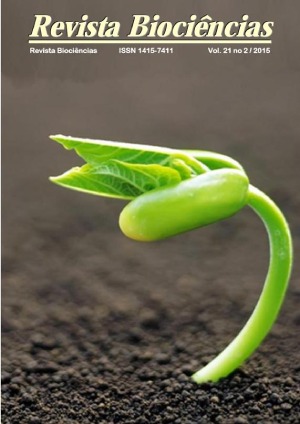Methods comparison to break seed’s dormancy of mutambo (Guazuma ulmifolia)
Keywords:
chemical scarification, cutaneous, germination.Abstract
The seeds of Guazuma ulmifolia Lam. exhibit cutaneous dormancy. Thus it has been necessary to carry out chemical scarification or thermal shock for the germination happens. The aim of this study was testing methodologies to break the seed’s dormancy to obtain a better germination of the specie. We tested 48 different treatments and two negative controls: in one of them the seeds were sterilized with sodium hypochlorite at 1% and the other control with no seed disinfection. The results were interpreted evaluating the germination speed index, average time and germination. The experimental design was completely randomized (DIC). As result, the immersion in sulfuric acid treatment for 60, 120 and 180 had significant effects on seed germination, being the best treatments for dormancy breaking; immersing in ethanol for 40, 50 and 60 minutes were the second best treatment while acetone, ether, hydrochloric acid and boiling water were not efficient in overcoming dormancy, since germination these treatments equaled the negative controls.






